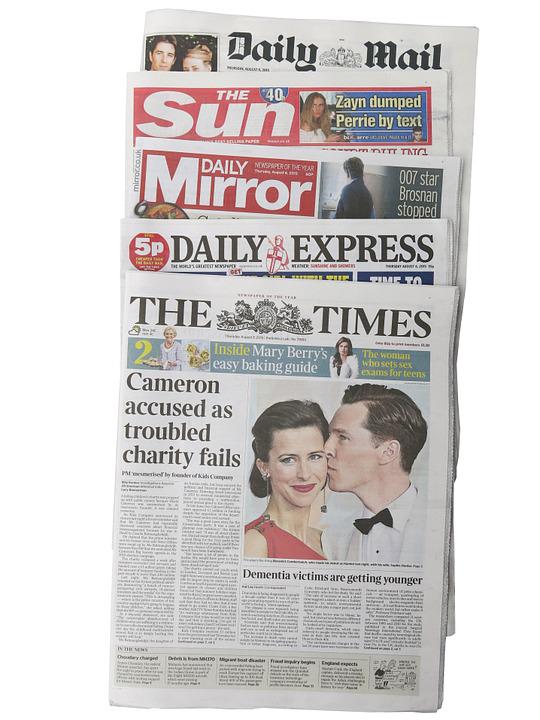Fake News?

Listen and read along
Do you usually read newspapers in your mother tongue? I guess not, even if you can name some of them. However,
let me tell you that, apart from informing us of what is going on in the world, they are a great resource to improve our
reading and writing skills. In English, this is particularly interesting because you are exposed to language as it is used
by native speakers. This is somewhat complicated at your English learning stage but a general overview about the
British press display and how the news are drafted will boost your reading comprehension and increase your
vocabulary, among others. Besides, you can also select more appropriate newspapers according to your level, as we
will see later on.
.
News reporting in any language has its own terminology and it is characterised by a more formal style of writing
combined with puns, especially used in headlines. Puns are jokes with the different meanings of a word or with
words which sound alike but have different meanings. For example, can you see the word game in The Sun headline
‘Don’t Cry For Me Argie Cleaner’ ? It's a play on the Manchester City’s Argentinian footballer Carlos Tevez and the song
‘Don’t Cry For Me Argentina’ from the 1978 hit musical Evita, as he had been sentenced to 250 hours community
service. The word play is between the pronunciation of 'Argie cleaner' and 'Argentina', which are quite similar.
Occasionally, you will find funny titles like this that will put your mind to work.
.
![]()
British newspapers, as any other, are found printed or digital. Regarding the printed ones, they can be be split into
two well defined categories, distinguished by their size at a glance. On the one hand, broadsheet newspapers,
named like this due to their large size, are more intellectual and serious newspapers, reporting political and overseas
news in formal language; examples are The Daily Telegraph, The Financial Times and The Sunday Times. On the other
hand, tabloid newspapers are smaller and commoner within the country. They are easier to read, with a lot of slang
(really informal) language though, and they include more pictures too. Their readers are usually teenagers or working
class citizens. They are, in turn, divided into red papers such as The Sun and the Daily Mirror, called like that because
their titles are in red colour, and middle-market papers, so called because they focus more on celebrity gossip and
current affairs. Examples of these are the Daily Express or the Daily Mail.
.
Another interesting fact is that UK newspapers can be published locally, regionally, nationwide and also at different
moments: daily or weekly, in the morning or in the afternoon. And despite the challenges of the internet and news
websites, many printed newspapers, both large and small, have remained attractive to readers and been profitable.

One of the most widely read newspaper in the United Kingdom is Metro. It is a free tabloid paper part of the same
media group as the Daily Mail, distributed from Monday to Friday (excluding public holidays) in the mornings on the
street and on trains, buses, at railway and underground stations, airports and hospitals across selected urban areas of
England, Wales and Scotland. It is a paper thought for the modern consumer.
By writing on the search engine the name of these well-known newspapers you will find their ONLINE VERSION free of
charge.
.
Some easier online newspapers for kids are 'Time for Kids.com', 'News for kids.net' or 'The Children Newspaper.com'.
By browsing through them you will find understanding current news easier.
.
By the way, have you ever wondered what are the sections contained in a newspaper? Try to brainstorm that before
working in the group activity we will carry out afterwards.